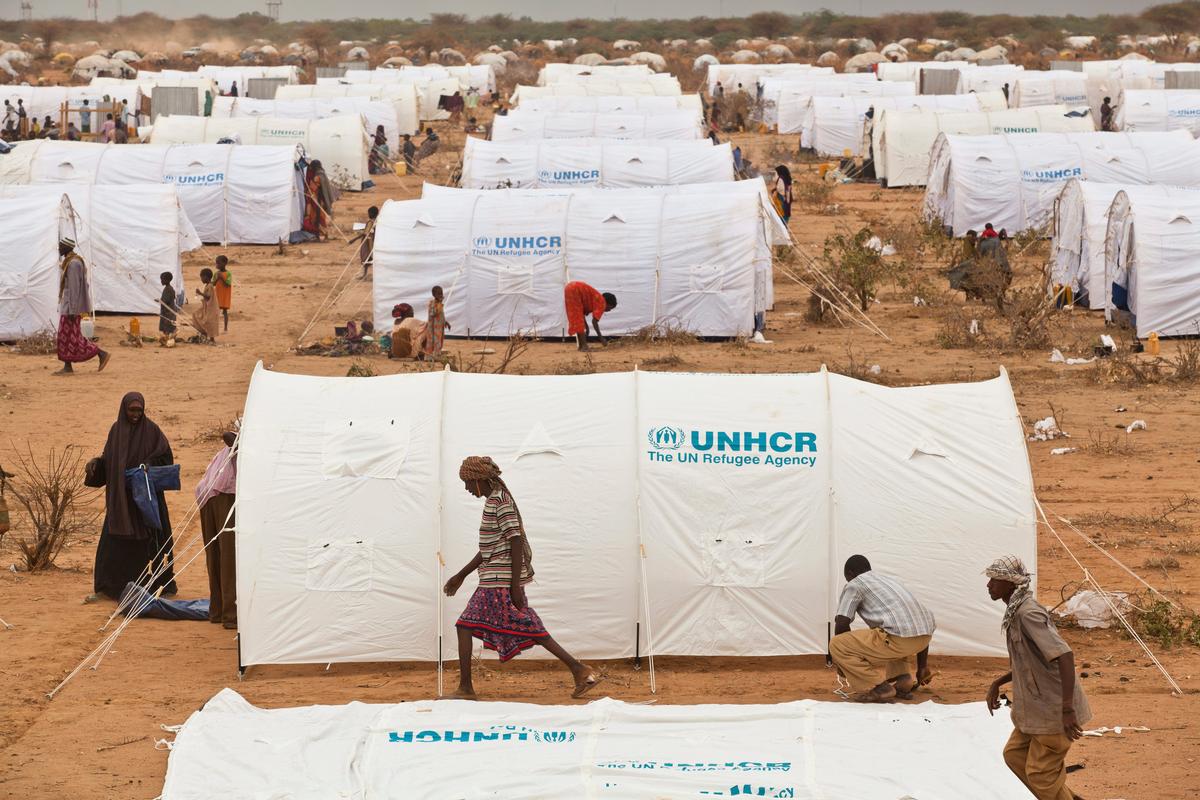Kenya: 2,000 Tanzanian refugees on hunger strike
Kenya: 2,000 Tanzanian refugees on hunger strike
Over 2,000 Tanzanian refugees from Pemba and Zanzibar have gone on a hunger strike to protest the Kenyan government's plans to transfer refugee leaders from the coastal town of Shimoni to Dadaab refugee camp in Kenya's North Eastern Province. This follows the Kenyan government's announcement that it was willing to allocate a temporary site nearby for the 2,254 refugees on condition that between 30 and 40 leaders of Civic Union Front (CUF) are separated and relocated to Dadaab refugee camp. Among these leaders are 16 legislators who arrived six weeks ago at the Kenyan coastal town of Shimoni following a demonstration that sparked clashes on the islands on January 27. The refugees have said that separating them from their leadership was unacceptable Last week, the refugees told UNHCR that they were willing to be relocated to Dadaab as a community. The Kenyan Government has expressed concern, following reports of constant attempts by CUF activists in Pemba to contact some of their leaders among the refugees. The proximity of their location to the Tanzanian/Kenyan border is another source of concern. According to the authorities, the safety of the refugee leadership could not be guaranteed if they remained in Shimoni.
In the meantime, the situation at the fisheries compound where they have been confined since their arrival on January 28 has become desperate as more people arrive. The compound, which was designed to accommodate no more than 600 people, is hardly an acre in size. UNHCR is building minimal sanitary facilities but the situation in the compound remains critical and poses a health hazard. The majority of the refugees are sleeping in the open because of the limited space, which makes it impossible to set up tents for all refugees. The rainy season is approaching and heavy showers last Thursday left many refugees soaked. If the refugees were to remain in this compound, their already appalling conditions would worsen even further during the rainy season.
Meanwhile, refugee leaders have expressed the community's willingness to return home to Pemba and Zanzibar, on condition that they get an amnesty for their participation in the Jan. 27 demonstration. The refugees have also drawn up a list of concerns related to the insecurity on the islands that they would like to see addressed before they would consider returning. They have repeated to UNHCR that they would like to return as soon as possible. A UNHCR mission will visit Pemba and Zanzibar this week to assess the situation on the two islands. This fact-finding mission will analyse conditions on the islands, in preparation for a possible return of refugees. The refugees have nominated 12 representatives to take part in the UNHCR-led mission to the islands, but UNHCR is yet to receive guarantees from the Tanzanian authorities for their safety.







